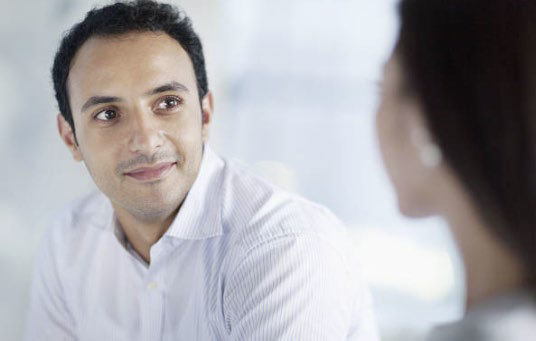Location Olten
Tannwaldstrasse 2
CH-4600 Olten (directly at the station)
+41 62 287 20 00
Opening hours
| Mon | 07.00 - 18.00 |
| Tue | 07.00 - 16.30 |
| Wed | 08.00 - 18.00 |
| Thu | 07.00 - 13.00 |
| Fri | 07.00 - 16.00 |
Location Basel
Centralbahnstrasse 9
CH-4051 Basel (directly at the train station)
+41 61 287 30 00
Opening hours
| Mon | 07.00 - 14.30 |
| Tue | 07.00 - 16.00 |
| Wed | 08.00 - 16.00 |
| Thu | 07.00 - 12.30 |
| Fri | 07.00 - 15.45 |
Phone times
| Mo | 08.00 - 11.30 / 14.30 - 16.00 |
| Tu | 08.00 - 11.30 / 14.30 - 16.00 |
| We | 08.00 - 11.30 / 14.30 - 16.00 |
| Th | 08.00 - 11.30 / 14.30 - 16.00 |
| Fr | 08.00 - 11.30 / 14.30 - 16.00 |
Or use our contact form and we will get in touch with you.
fertisuisse - State-of-the-art fertility treatment
in Olten and Basel
More and more couples are discovering that wanting a child is not always easy to achieve. If pregnancy does not occur naturally, reproductive medicine offers promising options to fulfil the previously unfulfilled desire of having a child. In Switzerland, approximately one in every ten couples is unwantedly childless. The causes of not being able to have a child are found in men just as often as they are in women. Research shows that nearly 40% of cases indicate a combination of causes stemming from both partners. In our fertility treatment centres, state-of-the-art diagnostic procedures are used to determine the exact reason for diminished fertility - sensitively and with minimal side effects. We consult with heterosexual couples, same-sex couples and single women. During the treatment process, our physicians comply with the highest scientific standards and solely use cutting-edge technologies in diagnostics and therapy.
Previously unsuccessful therapy
You simply cannot conceive and you ask yourself „“What are we doing wrong?”“ The reason for not conceiving can be found in women in approximately 30% of the cases and just as often in men. In our fertility centres, state of the art diagnostic procedures are used to determine the exact reason for diminished fertility - gently and with minimal side effects.
The most common reasons are dysfunctions in the production or functioning of male sperm cells (sperm), the age of the woman, polyps and myomas in the uterine cavity, blocked fallopian tubes, the absence of ovulation, endometriosis and sexual dysfunctions. Obesity, smoking and stress can also contribute to being involuntarily childless. In approximately 20% of cases, the cause of infertility cannot be determined despite diligent examination. These cases are referred to as unexplained infertility . Being involuntarily childless can severely affect the physical and mental health of a couple and therefore, is recognised as an illness by the WHO (World Health Organisation).
Professional associations recommend consulting a fertility specialist after six to eight months of unsuccessfully trying to conceive at the latest. For couples over the age of 35, we recommend contacting a specialist after three to four months.
The first appointment
To be able to compile an individually adapted course of therapy for you, the possible causes for your previous childlessness are discussed during your first appointment. It is important for our team of physicians to know how long you have already wanted a child and if there have been previous pregnancies - including miscarriages –. We review findings from other physicians/labs. We discuss previous surgeries, infections or chronic illnesses with you. The frequency and time of sexual intercourse is also addressed. We know that it is not always easy to discuss topics such as these.
Trust in our experience and empathy. We want you to feel comfortable and that you are in safe hands.
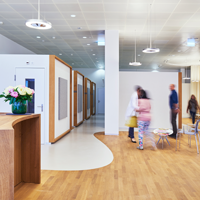
Female causes
Approximately 30% of the factors in cases of infertility relate to the woman. Even if the cause is apparently obvious (e.g. blocked fallopian tubes), additional exams must be conducted in order to select a tailor-made treatment method.
Male causes
Disorders in sperm production or limitations in sperm quality belong to the most frequent causes of involuntary childlessness in men. Appropriate analyses (spermiogram) can provide further insight.
Restricted ovarian reserve
According to today’s state of knowledge, fallopian tubes do not endlessly produce eggs in the women’s body; – in other words, the egg reserve (ovarian reserve) is finite. The current reserve of eggs in the ovaries can be determined in an ultrasound scan by counting the follicles and assessing the amount of Anti-Müllerian hormone (AMH) in the blood. Both values in combination with the age indicate whether the patient has an ovarian reserve that corresponds to her age.
In fertility diagnostics, the determination of the ovarian reserve is of crucial significance before a planned therapy. Based on the findings, the physicians can determine the functional condition and the egg quality with a view to estimating the chances of success of a planned treatment.
At fertisuisse, quality is our top priority
Our mission is to achieve patient satisfaction by ensuring a highly competent treatment in close collaboration with the conducted diagnostics. The fundaments of highly efficient treatment methods are continuous advanced training of our employees, the application of state of the art technology in diagnostics and in the labs and routine quality inspections. Our labs are accredited, comply with all regulations and are equipped with cutting-edge technology.
Our dedicated and trained team of employees makes precise diagnoses based on complex findings and compiles a specific treatment plan. In the andrology lab, semen analyses, among other things, are conducted and sperm is preprocessed for treatments. IVF and ICSI treatments take place in our cleanroom . Here, the eggs are prepared for fertilisation and then injected. The embryos that are to be transferred to the uterine cavity are cultivated in specific incubators until they reach the blastocyst stage. Fertilised eggs, which are not to be transferred yet, are frozen using the vitrification process. Everything under one roof.
With the help of the time-lapse incubators, our embryologists can evaluate the dynamic of embryo growth. Every single embryo is photographed every five minutes until reaching the blastocyst stage (five to six days). This results in a time-lapse film, which provides us with valuable information about the development of the embryo. A development that progresses ideally can increase the likelihood of a pregnancy. The time-lapse incubation is also an important requirement for making a pre-implantation genetic diagnosis. When the embryo begins to hatch, our experienced embryologists remove some of the cells from the embryo sac. Later on, the sac becomes the placenta. These cells undergo genetic testing. For women over the age of 37, this can improve the likelihood of pregnancy per embryo transfer and reduce the time until a child is born. A preimplantation genetic diagnosis is also used for couples whose children are at risk of suffering from life-threatening genetic disorders (monogenic diseases).
Our goal is to fulfil your desire for a child by using state-of-the-art technology.
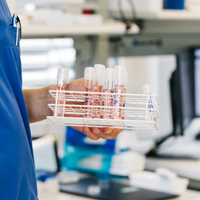
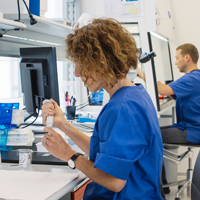
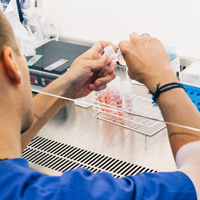
Your trust is important to us
A trusting atmosphere and individual support are important factors on the path to having the child you want. We want our service to make you feel well looked after and in safe hands at our facilities at all times. In line with fertility treatment, we offer you hormonal stimulations, insemination, artificial insemination (ICSI/IVF), pre/implantation genetic diagnosis (PGD), time lapse embryo culture, blastocyst culture, assisted hatching and social freezing (creation of a fertility reserve). Your medical examiner will discuss the best strategies with you and support and accompany you through all phases of treatment. Necessary examinations in line with making determinations and fertility treatments are conducted by our team of doctors. This course of action is efficient and has proven itself.
Alternative medical treatments
Our range of services is complemented by gentle methods derived from Traditional Chinese Medicine (TCM). Alternative medical methods can increase fertility for men and women and are suitable for supporting the preparation of insemination or in-vitro fertilisation. The use of acupuncture can have a positive effect on hormonal balance and therefore increase the chances of conception. You have the option of receiving acupuncture treatment from our experienced therapists before and/or after embryo transfer. Relaxation, holistic care and a feeling of security will support you on the journey to the child you want.
We take time for your needs.
Please let us know if there is anything you need.

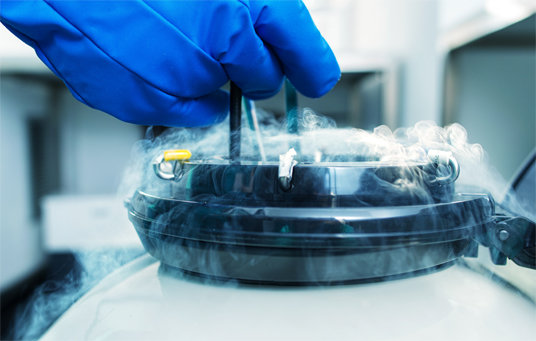

fertipedia
Technical terms explained quickly
From Amenorrhea to Zygote: Here you will find an overview of medical terms and their explanations.
Mediacenter


